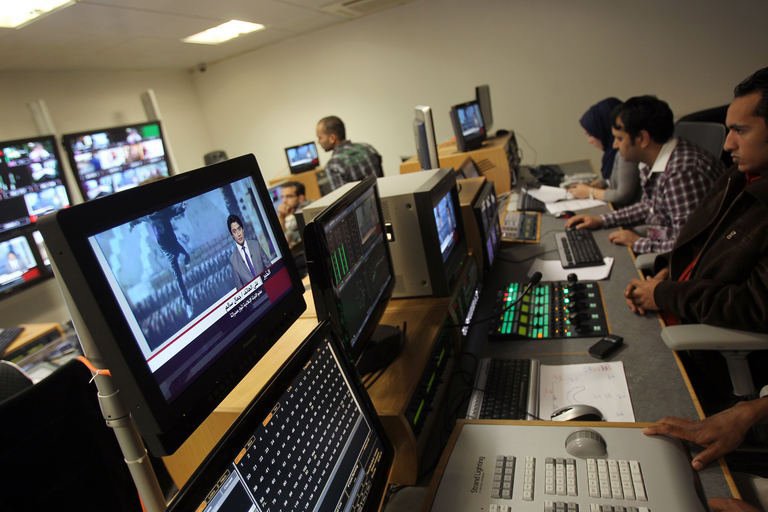BAGHDAD: The Baghdad offices of Al-Arabiya television closed on Friday after the interior ministry warned the Saudi-funded satellite network was under surveillance by insurgents, a staffer said.
"Interior ministry sources told us they had information that terrorist groups were closely watching the bureau in preparation for an attack," the Al-Arabiya journalist told AFP, asking not to be identified.
"The management asked all staff — journalists and technicians — not to come to work today."
Al-Arabiya’s headquarters in Dubai could not immediately be reached for comment.
But an Iraqi interior ministry official said: "There are terrorist threats" to the channel’s offices in the Al-Harthiyah area of west Baghdad. He did not elaborate.
The pan-Arab television channel has been no stranger to attack by suspected Sunni Arab insurgents or pressure from the Shia-led government.
In September 2008, its Baghdad bureau chief, Jawad Hattab, escaped unharmed after spotting a bomb, which would-be assassins had attached to his car, before it was detonated by remote control.
In October 2006, a car bomb targeting the channel’s bureau at the time killed seven people and wounded 20.
And in February 2006, Al-Arabiya presenter Atwar Bahjat and two of her colleagues were kidnapped and murdered in the mainly Sunni town of Samarra north of Baghdad as they covered the bombing of a revered Shia shrine, an attack claimed by Al-Qaeda that plunged the country into sectarian bloodshed.
But the channel’s ownership by Saudi and other Gulf investors has also made it the focus of suspicions by Iraq’s Shia-led government that its news agenda reflects the concerns of their Sunni governments.
In September 2006, the channel was banned from reporting out of Iraq for a month after officials took issue with its coverage of the passage through parliament of a bill strongly opposed by Sunni Arabs granting all of Iraq’s provinces the right to seek regional autonomy.
The month-long ban prompted condemnation from international press watchdogs and an expression of concern from Washington.
Iraqi Prime Minister Nuri Al-Maliki has been critical in recent days of what he says has been damaging intervention by regional powers in coalition talks aimed at forming a new government nearly four months after a general election.
Saudi Arabia and other Gulf states have been seen as strongly supportive of Maliki’s declared rival for the premiership, former premier Iyad Allawi.



